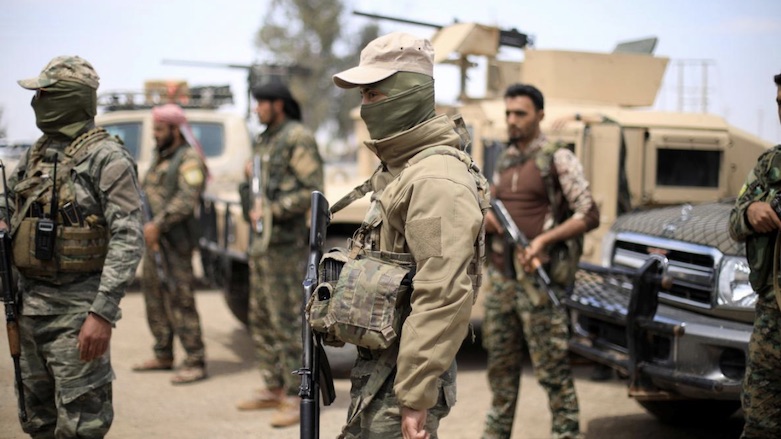SDF: 3,286 people missing from Kurdish areas since Syrian civil war began

ERBIL (Kurdistan 24) - The preliminary findings of an investigation commission linked to the US-backed and Kurdish-led Syrian Democratic Forces (SDF) show that a total of 3,286 persons have disappeared in predominantly Kurdish areas of Syria (Rojava) since the beginning of the Syrian civil war in early 2011.
On Thursday, SDF Commander-in-Chief Mazloum Abdi announced that the group had “assigned a committee with conducting investigations to uncover the fate of missing persons who disappeared in areas under our forces’ control, and hold the people involved in these crimes accountable.”
The Special Investigation Committee, as it is called, was formed in an attempt to unite various Syrian Kurdish parties following Ankara’s cross-border offensive into northern Syria on Oct. 9, leading to mass displacements and deaths of civilians.
The body was formed initially to investigate a list of 10 missing individuals submitted by the Kurdish National Council (KNC) on Dec. 15 to the SDF leadership as part of the effort to forge a new Kurdish unity in Syria between parties that have often been at odds or, at times, outright foes.
Read More: No ‘excuses’ to stop Kurdish unity in Syria: Senior PYD official
Tensions between the KNC and PYD (Democratic Union Party) have increased since the outbreak of the Syrian civil war in 2011, with the latter playing a significant role in the establishment of the self-administration that has ruled northeastern Syria.
The dominant Syrian Kurdish factions, the PYD and KDP-backed KNC, have not successfully cooperated because agreements they reached in Duhok and Erbil between 2012 and 2014 were never effectively implemented.
The SDF announced that the file of missing persons in the areas within Rojava (Al-Jazeera, Kobani, and Afrin) is a “huge and complex file,” and that so far a total of 3,286 missing persons have so far been documented.
This includes 544 persons kidnapped by the Islamic State, 2,368 kidnapped by factions of the Syrian opposition, and 374 kidnapped by the Syrian government.
The committee reported that eight out of ten names that had been submitted by the KNC to the SDF for investigation had disappeared during the security chaos before the creation of the local autonomous administration in January 2014 and even before the creation of the People’s Protection Units (YPG) in 2012.
According to early investigation results, the KNC’s Jamil Omar, a former member of the Democratic Union Party (PYD), was kidnapped by the security services of the Syrian government. However, two others, Amir Hamid and Fuad Ibrahim, were kidnapped by SDF military forces.
“Investigations are ongoing to reach the people who caused the disappearance of the two victims and hold them accountable,” the SDF’s General Command said.
Another who had been missing, Saud Mizar al-Issa, was reported released on Dec. 20, after the investigation began.
However, the SDF said it could not find additional information about two others unaccounted for, Behzad Dorsen and Nidal Othman, saying only that their disappearance occurred “in a region under the protection of the YPG.” As such, the SDF said, the local Asayish (security) was ultimately responsible for their well-being.
The committee added that it was faced with significant obstacles to effectively investigating individuals that went missing in the city of Afrin which has been occupied by Turkish and Turkish-backed forces since March 2018.
“Investigating the fate of missing persons is an ethical and legal duty that requires joint and strong and careful work,” the General Command of the SDF concluded.
“It requires the cooperation of all actors on the ground. Self-management institutions in northeastern Syria bear the legal responsibility to follow up their files and reach the required results.”
Editing by John J. Catherine
